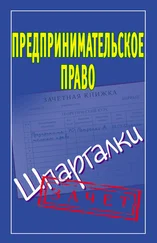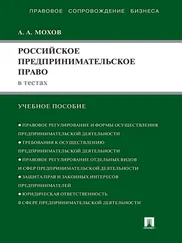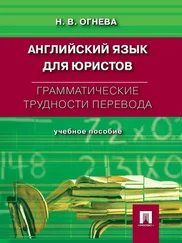1 ...6 7 8 10 11 12 ...37 Exercise 3. Consult recommended dictionaries and give words or phrases to the following definitions:
Обоюдное согласие сторон; расторжение договора по обоюдному согласию; изменение отдельных пунктов договора; лицо, уполномоченное собственником; предусмотрены любые формы взаимозачетов; вправе изменить размер платы; критерии ничтожности и оспоримости сделок; заинтересованное лицо; отсутствие согласия; нарушение прав и законных интересов; отсутствие вещных прав; неуполномоченное лицо; конклюдентные действия; распространяется на отношения; оспариваемый договор.
Exercise 4. Be ready to talk on one of the following topics:
1. List the elements that must be proved to establish fraud.
2. Identify situations that can give rise to claims of passive fraud.
3. Distinguish between fraud and misrepresentation.
4. Discuss the difference between unilateral and bilateral mistakes.
5. Judge which types of mistakes provide appropriate grounds for getting out of a contract.
6. Differentiate among physical, emotional, and economic duress.
Exercise 5. Make up your own dialog on the case: In Weaver v. American Oil Company, the Indiana Supreme Court held that clauses exculpating an oil company from liability for its negligence and obligating the station operator to indemnify the oil company for damages attributable were unconscionable:
The facts reveal that Weaver had left high school after one and a half years and spent his time, prior to leasing the service station, working at various skilled and unskilled labor oriented jobs. He was not one who should be expected to know the law or understand the meaning of technical terms. The ceremonious activity of signing the lease consisted of nothing more than the agent of American Oil placing the lease in front of Mr. Weaver and saying «sign», which Mr. Weaver did. There is nothing in the record to indicate that Weaver read the lease; that the agent asked Weaver to read it; or that the agent, in any manner, attempted to call Weaver's attention to the «hold harmless» clause in the lease. Each year following, the procedure was the same…The evidence also reveals that the clause was in fine print and contained no title heading which would have identified it as an indemnity clause.
Unit 5
Contractual Capacity
Договорная правоспособность и дееспособность
Способность иметь гражданские права и нести обязанности (гражданская правоспособность) признается в равной мере за всеми гражданами. Правоспособность гражданина возникает в момент рождения и прекращается смертью. Способность гражданина своими действиями приобретать и осуществлять гражданские права, создавать для себя гражданские обязанности и исполнять их, определяется как гражданская дееспособность, которая возникает в полном объеме с наступлением совершеннолетия. Граждане могут совершать любые не противоречащие закону сделки и участвовать в обязательствах (глава 3 ГК РФ). Граждане могут быть ограничены в правоспособности и дееспособности только в случаях и в порядке, установленных законом.
List of key terms and word combinations:
– abandon – отказываться (например, от права притязания)
– affirmance – утверждение, подтверждение
– capacity – правоспособность; дееспособность
– disaffirm – отменять; отказывать в подтверждении
– emancipated – эмансипированный
– majority – совершеннолетие
– minority – несовершеннолетие
– necessaries – необходимые предметы или услуги
– ratification – ратификация; последующее одобрение
– rebuttable presumption – опровержимая презумпция
The law has established a general presumption that anyone entering into a contractual relationship has the legal capacity to do so. This statement means that someone enforcing an agreement does not have to prove that when the contract was entered into the other party had contractual capacity. However, this is a rebuttable presumption; that is, a defending party (a minor, mental incompetent, or intoxicated person) has the right to attack the presumption in order to rescind a contract. Minors are generally excused from contractual liability due to their incapacity; their contracts are voidable.
Under common law, the term minority described persons who had not reached the age of 18 or 21 depending on jurisdiction. Upon reaching that age, a person attained majority.
In some jurisdictions, minors who become emancipated and are no longer under the control of their parents are responsible for their contracts. Emancipated minors include those who are married and those who leave home and give up all rights to parental support. These minors are said to have abandoned the usual protective shield given them.
Minors sometimes lie about their ages when making contracts. Despite the misrepresentation of age, most jurisdictions allow minors to disaffirm or void contracts. Executory contracts, those that have not been fully performed by both parties, may be repudiated by a minor at any time.
Goods and services that are essential to a minor's health and welfare are necessaries. Necessaries include food, clothing, shelter, and medical and dental services. In determining whether goods and services qualify as necessaries, the court inquires into the minor's family status, financial strength, and social standing or station in life. A minor's contract covering only the fair value of necessaries is enforceable against the minor.
An individual may disaffirm an agreement made during minority before or within a reasonable time after reaching adulthood. Failure to disaffirm within a reasonable period of time after reaching adulthood would imply that the contract had been ratified. The method of disaffirmance is fundamentally the same as that of ratification. Disaffirmance may be implied by the acts of the individual after achieving majority, as by a failure to make an installment payment.
Ratification, or affirmance, the willingness to abide by contractual obligations, may be implied by using the item purchased, making an installment payment, paying off the balance of money owed on a previously voidable contract, or continuing to accept goods and services provided under a contract after becoming of full age. Affirmation may also result from the person's oral or written declaration to abide by the contract. These and other acts ratify an existing agreement and elevate it to the status of one that is enforceable against an adult.
Читать дальше
Конец ознакомительного отрывка
Купить книгу












